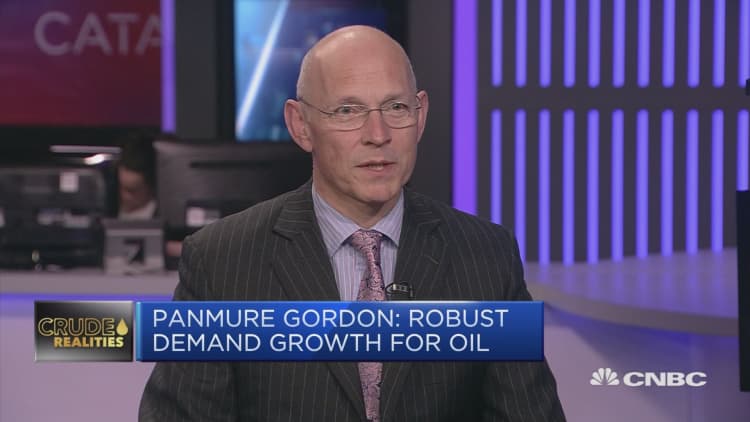
Saudi Arabia and Russia are ironing out the details on an unprecedented pact to extend controls over major exporters for decades to come.
Riyadh and Moscow have been engaged in supply cuts over the past year in order to try to clear a global supply overhang and keep prices in check. Yet, in an effort to further their influence over world crude supplies, the two countries are now reportedly working on a deal to actively manage markets for potentially the next 20 years.
OPEC is working on a "very long-term" deal to try to extend its alliance with other oil producers, Secretary General Mohammad Barkindo said at an energy conference in Baghdad, Iraq on Wednesday.
Barkindo's comments followed news at the start of the week in which Saudi Arabia's Crown Prince, Mohammad Bin Salman, told Reuters: "We are working to shift from a year-to-year agreement to a 10-20 year agreement."
OPEC would like pact with Russia 'very much'
OPEC and Russia were thought to be turning their production-cutting deal into a longer-term relationship in a bid to help fend off the next downturn and make the oil market less volatile. However, a 10 to 20-year pact would be an unprecedented move.
"I think it's certainly something that OPEC would like very much … And I think the agreement that they struck — that is with OPEC and non-OPEC members — actually took them quite a large step towards that," Colin Smith, oil analyst at Panmure Gordon, told CNBC Wednesday.
"I think getting to a fully-fledged agreement in which Russia becomes a de facto member is a bit of a push at the moment," he added.
The current agreement between OPEC and allied non-OPEC producers to reduce oil output by 1.8 million barrels a day is set to extend through the end of the year.
No end in sight to Saudi-Russia relationship
Meanwhile, in recent months, multiple energy ministers have endorsed retaining a relationship that could help prevent another destabilizing collapse in oil prices, like the one in 2015 and 2016.
Prices have since recovered to above $60 per barrel after crashing down to about $30 at the start of 2016, and OPEC's Barkindo has since described the agreement — which will be reviewed in June — to be "as solid as the Rock of Gibraltar."
The deal will then be reviewed again in December.
"While we wait to see if an unparalleled decades-long agreement between so many producers can be achieved, one thing seems certain — there is no expire date in sight for the Saudi-Russia romance," Stephen Brennock, oil analyst at PVM oil associates, said in an email on Wednesday.
— CNBC's Patti Domm contributed to this report.


